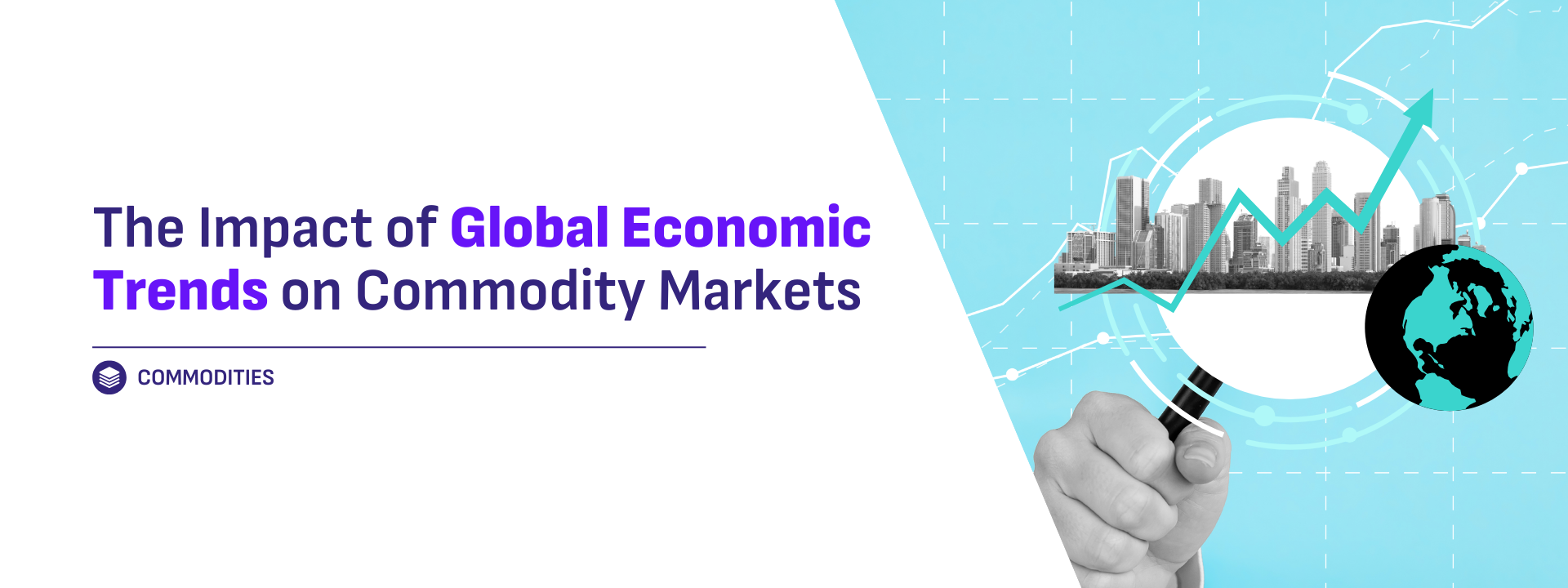

The Impact of Global Economic Trends on Commodity Markets
Introduction
Commodity markets are highly sensitive to global economic trends and events. Factors such as inflation, trade policies, and economic growth can have profound effects on commodity prices and market dynamics. This article explores how these global economic trends influence commodity markets and provides insights into the mechanisms behind these impacts.
Inflation and Commodity Prices
1. Inflation as a Price Driver
Inflation refers to the general rise in the price level of goods and services over time. It erodes the purchasing power of money and can lead investors to seek assets that preserve value. Commodities, such as gold and oil, are often seen as a hedge against inflation.
- Gold: Gold is traditionally considered a safe haven asset during inflationary periods. As inflation rises, the value of currency decreases, making gold an attractive investment for preserving wealth. Increased demand for gold can drive up its price.
- Energy Commodities: Oil and natural gas prices can also be influenced by inflation. Rising inflation can lead to higher production costs, which can be passed on to consumers in the form of higher energy prices.
2. Commodity Investment as an Inflation Hedge
Investors often turn to commodities as a way to hedge against inflation. Commodities tend to have intrinsic value and may increase in price when inflation is high. This can lead to increased investment in commodity markets, further driving up prices.
Trade Policies and Commodity Markets
1. Tariffs and Trade Barriers
Trade policies, including tariffs and trade barriers, can significantly impact commodity prices by affecting supply and demand dynamics.
- Tariffs: Tariffs imposed on commodities can increase the cost of imports, leading to higher prices for consumers and affecting the demand for both imported and domestic goods. For example, a tariff on steel imports can raise the cost of steel, influencing the prices of products that use steel, such as automobiles and construction materials.
- Trade Barriers: Non-tariff barriers, such as quotas and export restrictions, can also impact commodity markets. Restrictions on the export of agricultural products can lead to supply shortages and higher prices globally.
2. Global Trade Agreements
Trade agreements between countries can affect commodity markets by altering trade flows and market access. Free trade agreements can reduce tariffs and promote cross-border trade, leading to more stable prices and increased competition. Conversely, trade disputes and protectionist policies can disrupt supply chains and lead to price volatility.
Economic Growth and Commodity Demand
1. Economic Expansion
Economic growth tends to increase demand for commodities, as expanding economies often lead to higher consumption and production.
- Industrial Commodities: During periods of economic expansion, demand for industrial commodities such as copper, aluminum, and steel typically rises. These materials are essential for construction, manufacturing, and infrastructure development.
- Agricultural Commodities: Economic growth can also boost demand for agricultural commodities, as increased consumer spending often leads to higher consumption of food products.
2. Economic Recessions
Conversely, economic recessions can reduce demand for commodities. When economic activity slows, consumption decreases, and industrial production may decline, leading to lower prices for commodities.
- Energy Commodities: In a recession, reduced industrial activity can lead to decreased demand for energy commodities such as oil and natural gas, resulting in lower prices.
- Metals and Minerals: Similarly, reduced demand for metals and minerals during economic downturns can lead to price declines.
Geopolitical Events and Commodity Markets
1. Political Instability
Political instability and conflicts can disrupt commodity supply chains and lead to price spikes. For example, geopolitical tensions in oil-producing regions can lead to fears of supply disruptions, driving up oil prices.
- Supply Chain Disruptions: Conflicts and instability can affect the production and transportation of commodities, leading to shortages and price increases.
- Market Sentiment: Geopolitical events can also influence market sentiment, with investors reacting to potential risks and uncertainties.
2. Policy Changes
Changes in government policies, such as environmental regulations and subsidies, can impact commodity markets. For instance, new regulations on carbon emissions can affect the production costs of fossil fuels, influencing their prices.
Summary
Global economic trends and events play a critical role in shaping commodity markets. Inflation, trade policies, economic growth, and geopolitical events can all impact commodity prices and market dynamics. Understanding these influences is essential for investors, traders, and industry stakeholders looking to navigate the complexities of the commodity markets. By staying informed about global economic trends and their potential impacts, participants in the commodity markets can make more informed decisions and better manage their investment risks.

